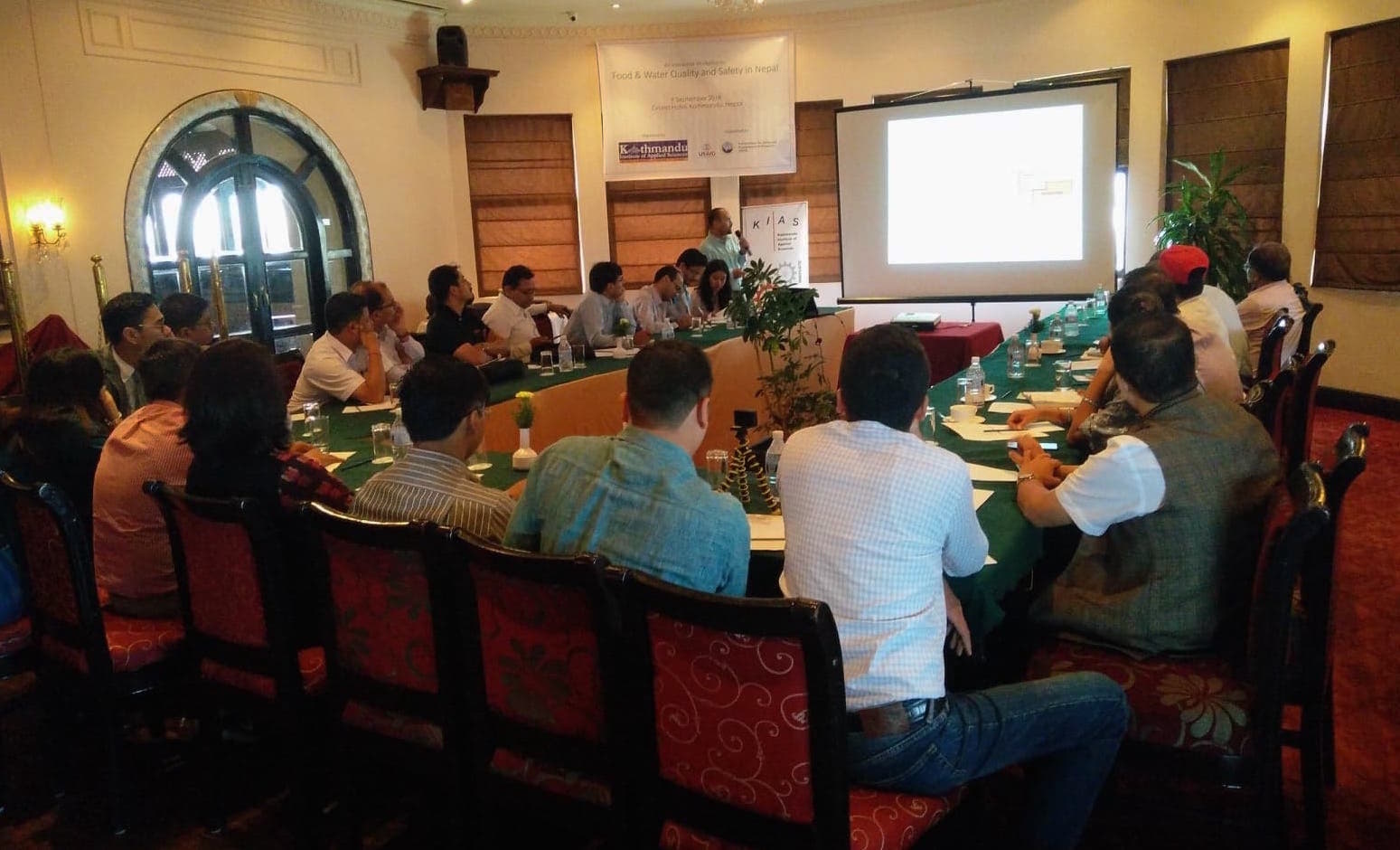By Sajeev Wagle


Kathmandu Institute of Applied Sciences (KIAS) organized a workshop on “Food & Water Quality and Safety in Nepal” addressing various food and water safety issues. The event was held in Grand Hotel, Kalimati on 9 September 2018 where 30 participants representing governmental, non-governmental, and private institutions actively participated and shared their experiences.
The World Health Organization (WHO) estimates that almost 1 in 10 people become sick due to contaminated food and more than four hundred thousand die every year globally. Similarly, contaminated drinking water is estimated to cause more than five hundred thousand deaths every year. We need safe and nutritious food and safe drinking water to sustain our life and to promote good health. However, unsafe food and water containing harmful bacteria, viruses, parasites or chemicals cause many diseases ranging from diarrhea to cancers, especially affecting children, elderly and already sick. Therefore the food and waterborne diseases impede socioeconomic development by straining health care systems, and harming national economies, tourism, and trade.

Various agencies of Government of Nepal conduct quality inspection of food and water products in Nepal. We read news about contamination in these products every now and then. Scientists at Kathmandu Institute of Applied Sciences are developing low-cost and easy to use technologies useful in monitoring the quality of food, water, and pharmaceutical products. The workshop was successful to bringing stakeholders from government agencies, producers, consumers, and research organizations in one platform for good collaboration between helps ensure food quality and safety.

Major objectives of the workshop were as follows.
The workshop started with the presentation covering research and outreach activities in Kathmandu Institute of Applied Sciences by Dr. Basant Giri. He introduced about various research projects currently implemented and funded to KIAS. Post- doctoral research associate Dr. Sajeev Wagle presented the overview of research project entitled “Mapping of pesticide residue and (oo)cysts on vegetable and fruits using low-cost field based assays”. Dr. Wagle’s presentation highlighted the need and scope of low cost and field based devices to detect pesticide residues and development of smartphone based microscope to detect cysts of protozoan parasites, giardia lambliaand cryptosporidium parvum. The research team at KIAS is currently developing and optimizing several parameters to validate the innovative low-cost and user-friendly devices.
The workshop participants were from Tribhuvan University, Department of Food Technology and Quality Control, Kathmandu Upatyaka Khanepani limited, Department of Plant Resources, Ministry of Livestock Development, HIMALI project, Manmohan Memorial Institute for Health Sciences, Research Institute for Bioscience and Biotechnology, Kathmandu Center for Genomics and Research Laboratory, NIST college, Kathmandu Research Institute for Biological Sciences and others. Participants actively shared their expertise and ideas in different food safety issues including pesticide residues in food and water, microbial and (oo)cyst contamination in drinking water, quality control, laws and policy addressing food safety, public awareness and role of individual citizen to tackle food safety issues. According to the participants, the workshop was very interactive, informative and fruitful in understanding the current scenario of food and water safety in Nepal.

The workshop was facilitated by Rojina Duwal. Dr. Bhanu Neupane thanked all the participants for making the event a success and Dr. Hemu Kafle chaired the workshop.
This workshop was supported by USAID through PEER program.

By Sajeev Wagle